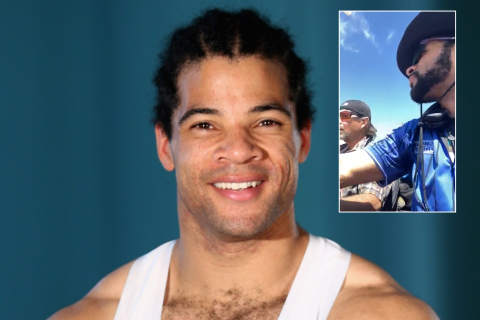AZERTAC interviews Rashad Rasulov, Executive Vice President of the Azerbaijan Judo Federation
– Azerbaijan’s judokas concluded the European Championship with five medals. How would you assess their performance?
– Overall, we consider our judokas’ performance satisfactory. The national team secured five medals – one silver and four bronze. Additionally, we had one fifth-place and one seventh-place finish. Notably, 7 out of 9 athletes from the men’s team advanced to the final block. Naturally, there were some shortcomings. A few athletes underperformed, such as Ruslan Pashayev in the 66 kg category, whose result was below expectations. We had also hoped for better outcomes from Turan Bayramov (60 kg) and Omar Rajabli (81 kg). But that’s the nature of competitive sports – errors occur, and our focus now is on correcting those going forward.
We must also acknowledge that two of our top athletes – last year’s European champions Hidayat Heydarov and Eljan Hajiyev – missed the event for various reasons. Had they competed, we likely would have added more medals to our tally. We didn’t expect medals from the women’s team this time, but at least one judoka, particularly Fidan Alizada, had a realistic chance to reach the quarterfinals. Unfortunately, she lost by ippon in the final seconds of a match she was dominating. A similar situation happened at the Grand Slam in Baku, where she lost two matches in the final moments.
Still, we saw potential in our women’s team, especially in the lower weight classes (48 kg and 57 kg). The federation remains committed to developing the women's team and will continue investing in that area. Our goal is to build a competitive women's team by the Los Angeles Olympics.
– Olympic champion Zelym Kotsoiev (100 kg) missed out on gold after losing in the final to his Georgian rival, whom he had previously beaten in Paris. What’s your take on that match?
– That’s sport – anything can happen. Zelym Kotsoiev and Ilia Sulamanidze have faced each other six times in their careers, with three wins each. Zelim triumphed over him in two major finals: the 2023 European Championship and the 2024 Olympic Games. His only loss came in this European Championship in Montenegro.
Zelim isn’t yet in peak form – this was his first competition nine months after the Olympics. Sulamanidze, on the other hand, had already participated in several events since then and was better prepared. It was clear that the Georgian team had adjusted their tactics. Sulamanidze took a more defensive approach, waiting for counterattacks – and it worked. Still, I wouldn’t say Kotsoyev looked weak. He dominated most of the bout in terms of pressure.
Ilia Sulamanidze is a world-class athlete, currently ranked No. 2 globally. Considering the context, earning a silver medal at such a prestigious tournament after a long break is a strong result for Zelim. That said, he’s not satisfied – as he mentioned on Instagram, he’s still hungry for victory and will continue working hard to achieve more.
– For the first time, our team participated in the mixed team competition at the European Championships. How would you evaluate the debut?
– Overall, our debut in the mixed team competition didn’t go as we had hoped. Due to the draw, we faced the extremely strong Georgian team in our very first match. Had it been a different team, we might have reached the quarterfinals and even contended for a medal. We’re certainly not weaker than teams like Belgium or Germany, who placed third.
The mixed team format features three male and three female judokas. For us, the key was for all three male athletes to secure wins, which would have resulted in a 3:3 tie. In that case, a random draw determines a rematch in one weight class, and the winner secures victory for their team.
Unfortunately, we couldn’t get to that stage. It's worth noting that Kotsoiev’s scoring against Georgia’s Guram Tushishvili could have been awarded ippon instead of waza-ari, but that’s part of the sport. Also, Heydarov (73 kg) and Hajiyev (90 kg) were unavailable for the event, which significantly impacted our lineup.
Although the outcome wasn’t ideal, we believe the experience gained is invaluable for future competitions. The insights we gathered will help our coaching staff make necessary tactical adjustments going forward.
– Apart from Zelym Kotsoiev, all the other medalists were standing on the senior European podium for the first time. What does this mean for the team?
– It’s noteworthy that our five medals came in five different weight categories – and all are Olympic weights. In judo, all categories are considered Olympic, so that matters.
Even more impressive is that four of the medalists were first-time podium finishers at the senior European Championship. That shows promising depth across the team and is a strong indicator of growth. Considering all this, we view our performance as satisfactory.
– Finally, how is Hidayat Heydarov doing, given he missed the championship due to health issues? Has he returned to training?
– Hidayat Heydarov is doing well. He has resumed light physical training, and preparations for the World Championships have already begun.
Idman.biz











